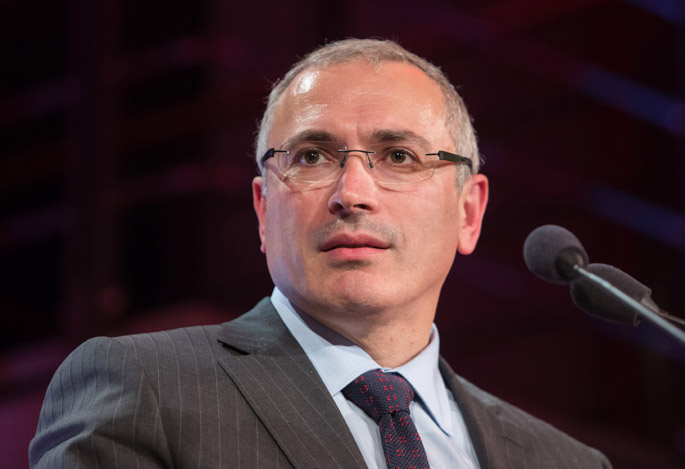Khodorkovsky talks to the BBC World Service

On November 27th, Mikhail Khodorkovsky was a guest of BBC World Service radio. He spoke to the Director of BBC News, James Harding during his On Background programme. Below is a transcript of their conversation.
BBC: – How do you think the Russian president has changed over the years?
MBK: I can only give you an answer based on indirect evidence. I believe he is allowing himself now to be much more emotional in his decision-making.
– And you challenged him, you were prosecuted, convicted, imprisoned, and, in effect, banished. What have you learnt of his character?
MBK: About his character: I think he described it very well in his own book, in a single phrase; he said that if you push a rat into a corner, it becomes dangerous.
– But he does not look like a rat in a corner. He looks like one of the most powerful figures in the world. Is it not the case that Vladimir Putin has to be engaged now, rather than isolated?
MBK: If Putin feels safe and comfortable in power, then you probably needn’t worry about any unexpected, unconventional moves from him. And, conversely, if you see him making unexpected, unconventional moves, this means that, irrespective of what you might think of his situation, he himself feels unsafe like a rat in the corner.
– Mr Khodorkovsky, you can’t solve all the world’s problems at once. There is an urgent problem in Syria. Is it not the case that the West needs to engage with Vladimir Putin to try to solve the Syria issue together – and then, in time, address the issues of Ukraine, and democracy in Russia?
MBK: No doubt, negotiations, including those with the Russians, are imperative. That said, one must always be aware that, unlike Western leaders, Mr Putin is not, by any means, restricted by any sort of institutional framework. And whatever he says, doesn’t have an institutional backing behind it. As a result, his words are worth exactly as much as you personally are willing to believe him. Based on historical experience of the last, say, 7 to 10 years, the question of how much one can trust him is a complicated question.
– Some Russian people I have spoken to say that they feel that the attacks in Paris will have a bigger retention than the bombing of a Russian plane in the Sinai. And the shooting down of a Russian jet this week has not elicited any note of sympathy from the West. Is there a risk that the West appears to be unsympathetic to the very human concerns of the Russian people?
MBK: Unfortunately, the world today is such, that even empathy has a very short shelf life. If the empathy had been allowed to be experienced immediately after the crash, it would have been much stronger, than it was allowed to be experienced a week later, because a week later it was already old news. And, unfortunately, there is another fundamental problem. The West gives a much higher value to human life, than it is custom for Russian authorities to do. The result is that people in Russia actually value human life in the West higher than they value their own.
– Will Russians, listening to this, think that Mikhail Khodorkovsky has gone mad? He was an oligarch, he was then a prisoner and now he is an exile. Actually, he does not speak for Russian society.
MBK: No doubt, people believing in today’s propaganda will say just that. But, people who are capable of analytical thinking, are going to look and see how well my predictions of how Russian people would react to something, actually came to pass. And they will realise that after living for 50 years in Russia, 2 years outside of the country does not erase your ‘Russianness.’
– During your time in prison many people made representations on your behalf that you should be freed. Can you think now, who would you send to try and manage the relationship with the West and Putin? Who would he listen to?
MBK: If you are prepared to concede everything to Putin, concede your position to him, then good negotiators would be Schröder, Berlusconi, and, maybe, Sarkozy.
– But none of the current leaders?
MBK: It would be hard for me to talk about any current leaders, who’d be ready to concede all positions to Putin. But if you are talking about really constructive talks, then the person who remains, is Merkel.
You can listen to the whole broadcast here.



